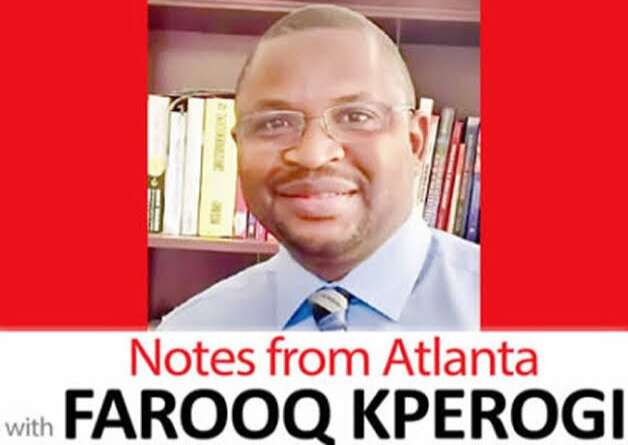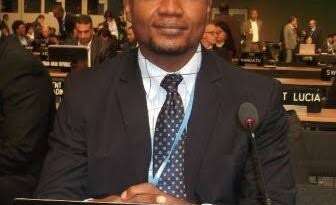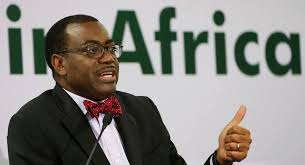Tinubu, Nigeria is Sinking and Streets are Full of Tears – By Farooq A. Kperogi
The searing torment that everyday folks are going through in Nigeria right now is so dire, so unbearably extreme, and so unexampled in its rawness that even diasporan Nigerians like me who live tens of thousands of miles away from home can feel it not just vicariously but also experientially.
The unending streams of requests for help to meet the most basic obligations of life that we get from previously proud, resourceful, and self-sufficient family members, friends, acquaintances, and even strangers are the conduits through which we have experiential encounters with the ongoing cost-of-living turmoil in the country.
The lower classes are sinking deeper into soul-depressing depths of poverty, despair, and hopelessness, and the middle class is so hobbled by the economic crunch that it is disappearing faster than soap bubbles. The lower and the middle classes are now united by a common sensation of emptiness, agony, and anxiety for the future.
Every day is worse, less hopeful, and more precarious than the previous day for most Nigerians. Even hope, which French philosopher François de La Rochefoucauld assured us is the last thing that dies in humans, is desperately going into a death spiral. That’s an ominous signal President Bola Ahmed Tinubu would do well to not take lightly.
Nigeria is famous for its superabundant supply of self-regenerating hope even in the midst of the most nerve-racking existential strain. You know you’re dealing with a potentially explosive social rupture when hope is grasping for breath among people who are famed for feasting on hope.
The current state of affairs isn’t unavoidable. It’s the predictable consequence of the pigheaded pursuit of a ruinous policy of subsidy removal from petrol, the lifeblood of Nigeria. I sounded an early warning about this a month before Tinubu was inaugurated.
In my April 29, 2023 column titled “Six Agenda Items for Tinubu’s Success,” I specifically warned Tinubu to resist the neoliberal anti-subsidy seduction of Western financial institutions, which they have successfully brainwashed Nigerian economists and civil society members into not just accepting but also aggressively evangelizing.
I wrote: “I know that there is now an artfully manufactured consent, particularly among the gilded classes in Nigeria, about the undesirability of ‘fuel subsidy.’ I don’t care what it’s called, but any policy (call it deregulation, subsidy removal, appropriate pricing, etc.) that results in an arbitrary and unbearable hike in the price of petrol without a corresponding increase in the salaries of workers and an improvement in the living conditions of everyday people will sink Tinubu.”
I concluded: “I can assure Tinubu that if petrol price hikes deepen people’s misery, he’ll have a tough time governing.”
The dramatic spikes we have seen in abductions for ransom all over the country are attributable to the rising tide of unheard-of deprivation that the removal of petrol subsidies has activated. And that’s just one auxiliary after-effect of the removal of petrol subsidies without a cushion or an alternative.
Other after-effects are the total collapse of the informal sector and what remained of Nigeria’s manufacturing sector. It also instigated the unprecedentedly hyper-inflationary pressures that are being exerted on the economy. Prices of basic goods and services and even of medications for common illnesses are now beyond the reach of people. That’s an unsustainable magnitude of agony.
But it was always obvious to anyone with even a halfway functioning brain that removing petrol subsidies in a weak, oil-producing economy that is organically petrol dependent, that has no well-developed public transportation system, that has weak infrastructures, and that is the poverty capital of the world would trigger infernal anguish on the vast majority of the people and tank the economy to the ground.
These are not birth pangs. They are not the pains before the gains. There is no light at the end of the tunnel. The tunnel is condemned to unrelieved darkness. The blight Nigerians are contending with now is the certain and inevitable result of a conscienceless implementation of disconnected and irrelevant economic policies inspired from outside Nigeria.
I came of age during General Ibrahim Babangida’s regime. IBB started the so-called structural adjustment programs (removal of subsidies, devaluation of the naira, mass retrenchment, etc.), which inaugurated Nigeria’s descent into the abyss. I heard the exact same things the current government is spouting during IBB’s time: that it would get worse before it got better, that after the birth pangs a big bouncing baby would be born, that there was delayed gratification awaiting us if only we could be a little more patient.
None of the promises materialized. Instead, suffering was elevated to crushing heights. Advanced fee fraud (also called 419) blossomed. Corruption was fertilized. Brain drain to the West got wings. This period also unleashed the naira’s irrecoverable slide into the deep hole of worthlessness.
Decades after, the same SAP about which hundreds of books and articles have been written and whose irreversible damage we continually lament, has been artfully repackaged, disguised, deodorized, and huckstered by a well-oiled gang of soulless apes who deployed all manner of clever rhetorical trickery to coax Nigerians into consenting to their own self-incineration.
The idea that petrol subsidies had to go because they were riddled with corruption and that they consumed a disproportionate share of our national budget is a mere propagandistic cop-out. If petrol subsidy administration is rid of corruption (that is perpetrated in cahoots with the government, which explains why no “subsidy thief” has ever been apprehended much less brought to justice), it would consume no greater share of our national budget than any governmental obligation.
It certainly won’t be anywhere near the colossal venality that is perpetuated at the Federal Ministry of Humanitarian Affairs, Disaster Management and Social Development under the guise of giving money to the poor.
The truth is that we have no original, independent thinkers among people who make or influence economic policies in Nigeria. They are all hopelessly mindless parrots of ill-comprehended economic prescriptions of the Bretton Woods institutions. They do not have the cognitive and intellectual sophistication to transcend what I call derivative or regurgitative knowledge.
There is not a single example of a country in the world that has developed on the basis of the prescriptions of the World Bank and the IMF. On the contrary, the only countries that have achieved inclusive growth and development outside the West are precisely the countries that have bucked the World Bank and the IMF. And every country that uncritically adopts the recommendations of these institutions has been wracked by utter devastation.
Unfortunately, if either Atiku Abubakar or Peter Obi were president today, Nigeria would experience exactly what it is going through now. Like Tinubu, Atiku and Obi said they would remove petrol subsidies “on day one.” When you remove petrol subsidies “on day one” in a desperately poor, inordinately petrol-supported economy with no public transportation, you get what Nigerians are going through now. It’s not rocket science.
Similarly, both Atiku and Obi said they would float the naira and let its fate be determined by the vagaries of demand and supply. When you do that in an import-dependent economy, you can’t escape what the naira is going through now.
Atiku tweeted in March 2021—and in several policy documents—that “Nigeria must move towards a single exchange rate to be determined by market forces.”
On April 9, 2022, Obi also tweeted: “The truth is that for long market forces have not determined the exchange rate of the Naira…. It has to end. Let the exchange rate be determined by the forces of demand and supply. It’s that simple.”
In other words, Tinubu is doing exactly what Atiku and Obi had proposed they would do, and the results would have been the same. The hyperinflation and hurt Nigerians are going through now won’t have been evaded because it is Atiku or Obi who removed petrol subsidies “from day one.” The naira’s glide to the bottom wouldn’t have been avoided because Atiku or Obi “floated” the naira.
That is why Atiku- or Obi-supporting critics of Tinubu come across as ignorant partisans who have drunk the Kool-Aid of their cult leaders. Atiku and Obi supporters should be grateful that their idols are not president today. They would have been bearing the reputational brunt of the boneheaded, discredited rightwing economic policies they also advocated, which have thrown Nigeria into the current mess.
Interestingly, in response to Obi’s 2022 tweet rhapsodizing over the imperative of subjecting the naira to the “forces of demand and supply,” a supporter of his by the name of Abel (with the handle @governance9ja) wrote a riposte, which has turned out to be prescient. He wrote: “So @PeterObi will float the currency for a country where most factor inputs into local manufacturing is imported? We already have cost push inflation reducing real income of many Nigerians. Floating naira will ruin many households. @PeterObi and @OfficialABAT are two of a kind.”
Obi supporters who have wet dreams of a Nirvana if Obi were president should wake up. His economic policies are exactly like Tinubu’s. Personalities aren’t the issue; policies are.
Tinubu and his team need to face the reality confronting them and change course. I know that Nigeria has been so polluted by neoliberal propaganda that even news that the government was paying subsidies through the backdoor to stop petrol prices from getting to N1,000 per liter was seized upon by the opposition to poohpooh the government, which compelled the government to deny paying any subsidies.
I’ve never seen this level of self-crushing inanity in my life. Assistance to the needy (which is what subsidy literally means) is now a dirty word that everyone avoids like the plague.
But the government should know that even hope is dying in Nigeria. When a usually hopeful nation spawns armies of hopeless and angry people through thoughtless economic policies dictated by outsiders, it sows and nurtures the seeds of its self-destruction.
Twitter: @farooqkperogi




